
Find Help
More Items From Ergsy search
-

Can gonorrhoea be asymptomatic?
Relevance: 100%
-
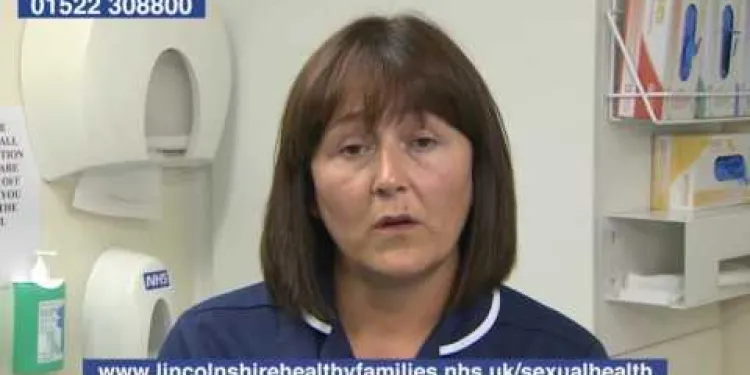
The symptoms of gonorrhoea
Relevance: 56%
-

What is Gonorrhoea?
Relevance: 55%
-

Pharyngeal swab for Gonorrhoea and Chlamydia
Relevance: 55%
-

How is gonorrhoea transmitted?
Relevance: 50%
-

How is gonorrhoea diagnosed?
Relevance: 49%
-

Can gonorrhoea be prevented?
Relevance: 49%
-

Urine test for Gonorrhoea and Chlamydia
Relevance: 49%
-

Is there a vaccine for gonorrhoea?
Relevance: 49%
-

Can gonorrhoea infect areas other than the genital organs?
Relevance: 48%
-

Vaginal Swab test for Gonorrhoea and Chlamydia
Relevance: 47%
-

How often should one get tested for gonorrhoea?
Relevance: 47%
-

Understanding Your Sexual Health - Gonorrhoea
Relevance: 47%
-
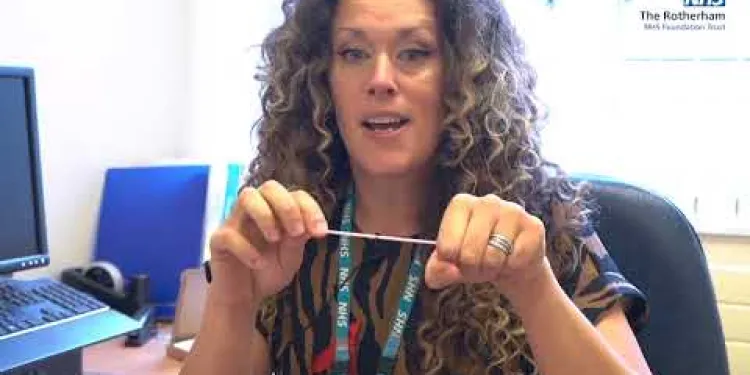
Rectal swab test for Gonorrhoea and Chlamydia
Relevance: 47%
-

Why is antibiotic resistance a concern with gonorrhoea?
Relevance: 45%
-

Are there any long-term effects of gonorrhoea?
Relevance: 45%
-
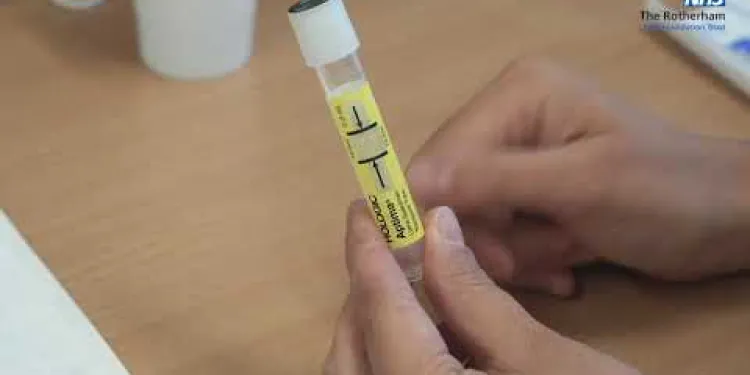
Urine test for Gonorrhoea and Chlamydia
Relevance: 43%
-

What antibiotics are used to treat gonorrhoea?
Relevance: 43%
-

What should one do if they suspect they have gonorrhoea?
Relevance: 42%
-

Is gonorrhoea treatable?
Relevance: 41%
-

Can you still get gonorrhoea after treatment?
Relevance: 40%
-
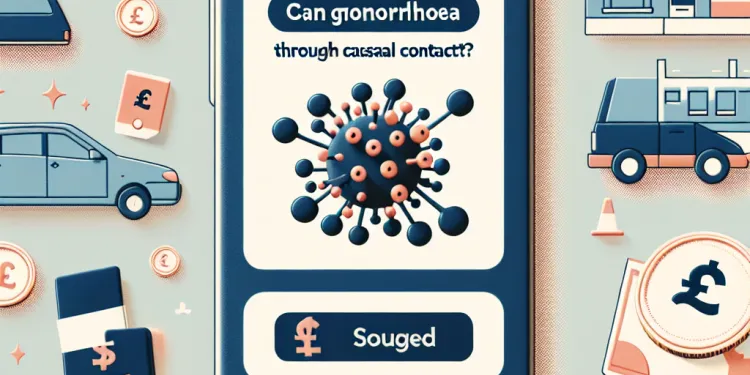
Can gonorrhoea be spread through casual contact?
Relevance: 28%
-
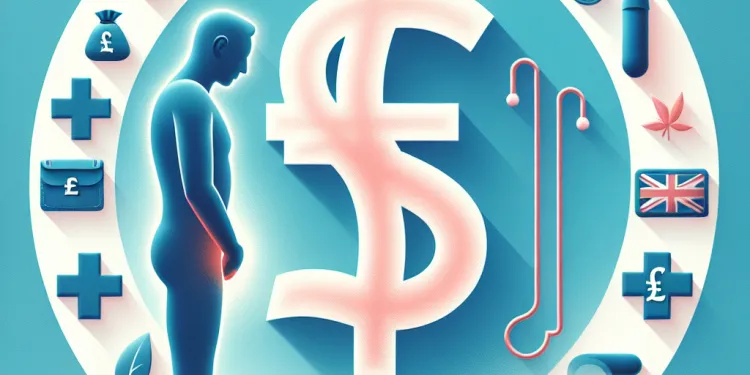
Can gonorrhoea cause complications if left untreated?
Relevance: 28%
-

What is 'the clap'?
Relevance: 21%
-

What are the symptoms of gonorrhoea?
Relevance: 20%
-

Can gonorrhoea be passed from mother to child?
Relevance: 16%
-

Sexually transmitted infections STIs
Relevance: 15%
-

NHS STI (Sexually Transmitted Infections) Information Video
Relevance: 14%
-

How are cold sores transmitted?
Relevance: 13%
-

Can self-testing detect all eye conditions?
Relevance: 12%
-

How is Nipah Virus diagnosed?
Relevance: 11%
-

Understanding Your Sexual Health - Pelvic Inflammatory Disease
Relevance: 11%
-

Let's Talk Sexual Health - Home Self Testing Kits
Relevance: 11%
-

BSL Pelvic inflammatory disease (PID)
Relevance: 10%
-

Let's Talk Sexual Health - Home Self Testing Kits
Relevance: 10%
-

Hernias and their Treatments - A guide for patients
Relevance: 10%
-

Coeliac Disease: Session 1: What is Coeliac Disease?
Relevance: 9%
-
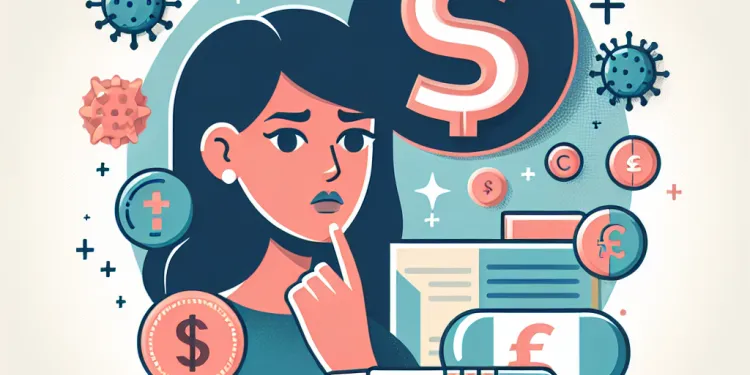
Are cold sores contagious?
Relevance: 9%
-

What is AIDS?
Relevance: 9%
-

What are the symptoms of Zika virus?
Relevance: 9%
Understanding Asymptomatic Gonorrhoea
Gonorrhoea is a sexually transmitted infection (STI) caused by the bacterium Neisseria gonorrhoeae. It is a common concern in the UK, affecting various demographics across the population. While gonorrhoea is often associated with noticeable symptoms, it is crucial to understand that it can also be asymptomatic, particularly in certain cases.
What Does Asymptomatic Mean?
When an infection is described as asymptomatic, it means that the individual carries the disease without exhibiting any outward signs or symptoms. Asymptomatic gonorrhoea refers to cases where the infected person does not present the well-known symptoms such as pain during urination, unusual discharge from the genitals, or pelvic pain. This lack of symptoms can make it challenging to detect and treat the infection promptly, leading to potential complications.
The Prevalence of Asymptomatic Gonorrhoea
Research indicates that a significant number of gonorrhoea cases can be asymptomatic. This is particularly true for women, with studies suggesting that a substantial percentage of women infected with gonorrhoea do not exhibit symptoms. Men can also experience asymptomatic infections, although it is less common. Asymptomatic cases contribute to the spread of the infection, as individuals may unknowingly transmit the bacteria to their sexual partners.
Why Asymptomatic Gonorrhoea Matters
Asymptomatic gonorrhoea is a public health concern because it can lead to serious health issues if left untreated. In women, untreated gonorrhoea can lead to pelvic inflammatory disease (PID), which can cause lasting damage to the reproductive system and increase the risk of infertility. Men may experience complications such as epididymitis, which can also affect fertility. Additionally, the unnoticed transmission of gonorrhoea can contribute to the spread of the disease within communities.
Diagnosis and Testing
Because gonorrhoea can be asymptomatic, regular testing is crucial for sexually active individuals, particularly those with multiple partners or those who engage in unprotected sex. Testing for gonorrhoea in the UK often involves providing urine samples or swabs from potentially affected areas. Early detection through routine screenings is key to preventing health complications and curbing the spread of the infection.
Treatment Options
When diagnosed, gonorrhoea can be effectively treated with antibiotics. It is important for individuals who test positive to complete the full course of prescribed medication even if symptoms are not present, to ensure full eradication of the infection. Additionally, informing sexual partners and encouraging them to get tested and treated is vital to prevent reinfection and further transmission.
Conclusion
Asymptomatic gonorrhoea highlights the importance of awareness and regular STI screenings for sexually active individuals in the UK. Understanding that the absence of symptoms does not equate to the absence of infection is crucial for personal health and public well-being. Timely diagnosis and treatment can effectively manage and reduce the prevalence of this STI.
Understanding Gonorrhoea Without Symptoms
Gonorrhoea is an illness you can get from having sex. It is caused by tiny germs called bacteria. Many people in the UK can get it. Sometimes, you can have gonorrhoea and not know because you don't feel sick or see any symptoms.
What Does No Symptoms Mean?
If you have an illness and feel normal, you might not know you are sick. This is called having no symptoms. Gonorrhoea can sometimes be like this. It means you don't feel pain when peeing, or see anything odd coming from your private parts, or have pain in your tummy. If you don't know you're sick, you might not get help, and it can get worse.
How Common is Gonorrhoea Without Symptoms?
Lots of people can have gonorrhoea without knowing. This happens more often in women. Many women with gonorrhoea don't feel sick at all. Men can have it with no signs too, but this is less common. When people don't know they're sick, they can pass it to others without meaning to.
Why Is This Important?
Gonorrhoea without symptoms is important because if you don’t treat it, it can make you very sick. For women, it can hurt the parts inside that help them have babies later. Men can have problems too, which might make it hard to have children. If you don’t know you're sick, you can also give it to other people without knowing.
How Do You Know If You Have It?
Since you might not feel different, it is important to get tested. If you are having sex with different people or not using protection like a condom, you should get checked. In the UK, they test using pee or by taking a little bit from places that might have the germs. Getting tested often can help stop it from spreading and keep you healthy.
How Is It Treated?
If you find out you have gonorrhoea, you can take medicine to get better. This medicine is called antibiotics. Even if you don’t feel sick, you should take all of the medicine. It's also important to tell the people you’ve had sex with so they can get tested too. This helps stop it from spreading.
Final Thoughts
Even if you feel fine, you can still have gonorrhoea. That’s why it’s important to get checked regularly if you are having sex. Knowing that not having symptoms doesn’t mean you’re not sick is important for staying healthy and keeping others healthy too. If you find out early, you can get treated and keep from spreading it to others.
Frequently Asked Questions
Can gonorrhoea be asymptomatic?
Yes, gonorrhoea can sometimes be asymptomatic, meaning that individuals may carry the infection without showing any symptoms.
What percentage of people with gonorrhoea are asymptomatic?
Estimates suggest that about 10-15% of men and up to 50% of women with gonorrhoea may be asymptomatic.
How does asymptomatic gonorrhoea get diagnosed?
Asymptomatic gonorrhoea can be diagnosed through routine STI screenings, which involve laboratory tests on samples such as urine or swabs.
Why is asymptomatic gonorrhoea a concern?
Asymptomatic gonorrhoea is a concern because it can be unknowingly transmitted to others and can lead to complications if left untreated.
Can asymptomatic gonorrhoea cause complications?
Yes, even without symptoms, gonorrhoea can cause complications such as pelvic inflammatory disease in women and epididymitis in men.
Is routine screening recommended for asymptomatic individuals?
Yes, routine screening is recommended for sexually active individuals, especially those with new or multiple partners, to catch asymptomatic STIs.
Can asymptomatic gonorrhoea resolve on its own?
No, gonorrhoea does not resolve on its own and requires antibiotic treatment to be cured.
How can someone prevent asymptomatic gonorrhoea?
Prevention includes practicing safe sex, using condoms, and getting regular screenings if sexually active.
Can asymptomatic gonorrhoea be transmitted to others?
Yes, individuals with asymptomatic gonorrhoea can still transmit the infection to sexual partners.
Can asymptomatic gonorrhoea become symptomatic over time?
Yes, in some cases, gonorrhoea may eventually cause symptoms if it progresses or leads to complications.
What are the common symptoms of gonorrhoea if they do appear?
Common symptoms can include a burning sensation when urinating, discharge from the penis or vagina, and pain or swelling in the testicles.
How frequently should one get tested for gonorrhoea?
Sexually active individuals should discuss their testing needs with a healthcare provider, but usually it's recommended annually for those at higher risk.
What are the risks of untreated asymptomatic gonorrhoea?
Untreated gonorrhoea can lead to serious health issues such as infertility, increased risk of HIV transmission, and systemic infections.
Is there a vaccine for gonorrhoea?
No, currently there is no vaccine for gonorrhoea, making prevention and regular testing important.
How soon after exposure can gonorrhoea be detected?
Gonorrhoea can typically be detected within a few days to a week after exposure through appropriate testing.
Can asymptomatic gonorrhoea affect pregnancy?
Yes, gonorrhoea can affect pregnancy, leading to risks such as preterm birth or transmission to the baby during delivery.
Does asymptomatic gonorrhoea require different treatment?
No, the treatment for asymptomatic gonorrhoea is the same as symptomatic cases, involving prescribed antibiotics.
Can asymptomatic gonorrhoea cause long-term health issues?
Yes, if left untreated, asymptomatic gonorrhoea can lead to chronic pain, reproductive issues, and spread to other parts of the body.
Do both partners need treatment if one is asymptomatic?
Yes, if one partner tests positive for gonorrhoea, both partners should be treated to prevent reinfection.
What should you do if you suspect exposure to gonorrhoea but have no symptoms?
You should get tested as soon as possible to detect any asymptomatic infections early and receive appropriate treatment if needed.
Can you have gonorrhoea without knowing it?
Yes, sometimes people can have gonorrhea but not feel sick or show any signs. This means they can have the infection and not know it.
How many people with gonorrhea don't show signs of being sick?
Some people with gonorrhea may not feel sick or look sick. This means they do not show signs or symptoms. It is important to get a check-up to know for sure. Asking a doctor can help a lot.
Tools like picture guides or talking to a health helper can make it easier to understand.
Doctors think that 10 to 15 out of every 100 men with gonorrhoea might not show any signs. For women, it could be up to 50 out of 100.
If reading is hard, try using a tool that reads the text out loud, like a screen reader or a text-to-speech app. These can help you understand better.
How do doctors find out if someone has gonorrhoea without symptoms?
Doctors can find gonorrhea even if you don’t feel sick. They test for it with regular health checks. They look at samples like pee or swabs from your body.
Why is it a worry if you have gonorrhoea but no symptoms?
Sometimes people have a sickness called gonorrhoea but they don't feel sick. This is called being asymptomatic. It's a worry because:
- They might not know they have gonorrhoea.
- They can still pass it to others without knowing.
- If it is not treated, it can cause more problems later.
If you think you might have gonorrhoea, use these steps:
- Visit a doctor or nurse.
- They can do a test to see if you have gonorrhoea.
- If you have it, they can give you medicine to make it better.
Gonorrhoea is an illness that you can have without feeling sick. This is called "asymptomatic." When you don't know you have it, you can accidentally give it to other people. If you do not get medicine for it, it can cause bigger health problems.
If you find reading tricky, it's okay to ask someone for help. Maybe you can use apps on your phone that read text aloud. This can help you understand the words better. There are dictionaries too where you can look up words you don’t know.
Can you have problems if you have gonorrhea but no symptoms?
Yes, sometimes people do not feel sick from gonorrhea. But it can still cause problems. In women, it can lead to a disease that hurts the pelvis. In men, it can cause pain in the tubes near the testicles.
If reading is hard, use tools that read out loud. You can also ask someone to help explain the words.
Should people who feel fine get regular health check-ups?
Yes, it is a good idea for people who are sexually active to get regular check-ups. This is important if you have a new partner or more than one partner. These check-ups can help find STIs (sexually transmitted infections) that do not show any signs.
Using reminders on your phone can help you remember to schedule these check-ups regularly. You can also talk to a trusted adult or healthcare provider if you have questions.
Can gonorrhea go away by itself if you don't feel sick?
Gonorrhea is an infection.
Sometimes, it doesn't make you feel sick. This is called "asymptomatic."
Even if you don't feel sick, gonorrhea usually won't go away without treatment.
It is important to see a doctor and get medicine.
Doctors can help you get better with medicine.
Ask an adult to help you see a doctor if you think you have gonorrhea.
No, gonorrhea does not go away by itself. It needs medicine from a doctor to get better.
How can someone stop getting a gonorrhoea infection without symptoms?
Gonorrhoea is a sickness you can get from sex. Sometimes, people do not feel sick, but they still have it. Here is how you can stop it:
- Use a condom when you have sex. This helps keep germs away.
- Do not share towels or underwear.
- Go to the doctor and get checked, even if you do not feel sick.
- Talk to your partner. Make sure they are checked too.
These things can help you stay healthy. If you need help, you can use pictures or ask a friend or family member for support.
To stay safe, use condoms when you have sex. It's also important to have regular health check-ups if you are having sex.
Can you give gonorrhoea to others if you don't feel sick?
Yes, people with gonorrhea who do not feel sick can still give the infection to others during sex.
Can someone with gonorrhoea feel sick later on if they didn’t feel sick at first?
Sometimes, people don’t feel sick when they first have gonorrhoea. This means they have no symptoms. But later, they might start to feel sick and get symptoms.
Doctors can help figure this out. It’s good to get checked by a doctor even if you don’t feel sick, just to be safe.
Helpful tools: You can use pictures or talk to a friend to understand this better.
Helpful tips: Ask a doctor questions if you are unsure about gonorrhoea.
Yes, sometimes gonorrhoea can cause signs and make you feel unwell, especially if it gets worse or causes other problems.
What signs can you see if someone has gonorrhoea?
Sometimes, gonorrhoea does not show any signs. But when it does, you might notice:
- Pain or burning when going to the toilet.
- Unusual liquid coming from private parts.
- In women, pain in the lower belly.
- In men, sore testicles.
If you notice these signs, you should talk to a doctor or nurse. They can help you. Use pictures or videos to understand better. Ask someone you trust to explain things to you.
Some common signs of a problem are:
- A burning feeling when you pee.
- Liquid coming out of the penis or vagina.
- Pain or swelling in the testicles.
If this sounds like you, tell a grown-up or a doctor. They can help you feel better.
How often should you get tested for gonorrhoea?
Gonorrhoea is an infection you can get from sex. It's important to check if you have it. Here are some tips for testing:
- If you have a new partner, get tested.
- If you have more than one partner, get tested regularly.
- If you feel something is wrong, see a doctor.
If you're unsure, ask a doctor or nurse for advice. They can help you decide when to get tested.
You can also use tools like reminder apps on your phone to help you remember.
If you have sex, talk to your doctor or nurse about when to get tested. People who might get sick more easily from sex usually get checked once a year.
What happens if you don't treat gonorrhea that has no signs?
Gonorrhea is a germ that can make you sick. Sometimes, you might have gonorrhea but feel okay because there are no signs. But even if you feel fine, it's important to see a doctor.
If you don't get treated:
- You might get other health problems later.
- You can pass the germ to other people.
Here's how to stay healthy:
- Visit a doctor for a check-up.
- Follow what the doctor tells you to do.
- Ask lots of questions if you are unsure.
Some tools can help you understand:
- Ask someone you trust to explain.
- Use pictures or videos to learn more.
If gonorrhoea is not treated, it can cause big health problems. It might make it hard to have babies, make it easier to catch HIV, and cause infections all over the body.
Is there a shot to stop gonorrhoea?
No, there is no shot yet to stop gonorrhoea.
If you have questions, you can:
- Ask a doctor.
- Look on trusted websites for more information.
It helps to talk to someone if you need more support or if you are worried.
No, there is no shot to stop gonorrhea right now. This is why it is important to stay safe and get checked often.
When can doctors find gonorrhoea after catching it?
Doctors can find out if someone has gonorrhoea just a few days to a week after they might have caught it. They do a test to check.
Can you have gonorrhoea with no signs and will it hurt a baby if you are pregnant?
Some people can have gonorrhoea and not know it. This is called "asymptomatic." It means there are no signs like pain or feeling sick.
If a pregnant person has gonorrhoea, it can be bad for the baby. It is important to talk to a doctor. They can help keep the baby safe.
Ask for help from a doctor or nurse if you are worried. They can give you good advice.
Gonorrhea is an infection. If a woman has gonorrhea when she is pregnant, it can cause problems. These problems include the baby being born too early or the baby getting the infection when being born.
Do you need a different treatment if you don't feel sick from gonorrhoea?
No, the treatment for gonorrhoea without symptoms is the same as when you have symptoms. You need to take medicine called antibiotics that the doctor will give you.
Can you have health problems from gonorrhoea if you don't feel sick?
Gonorrhoea is a kind of sickness. Sometimes, people have gonorrhoea but don't feel sick. This is called "asymptomatic gonorrhoea." Even if you don't feel sick, gonorrhoea can still cause problems later. It is important to see a doctor to get checked and treated.
Here are some ways to help:
- Ask someone you trust to help you understand.
- Use pictures or diagrams to learn about gonorrhoea.
- Write down questions to ask your doctor.
Yes, if you don't treat gonorrhea, it can cause long-lasting pain. It can also cause problems having babies and spread to other parts of your body.
Do both people need medicine if one person feels okay?
If one person does not feel sick, both people might still need medicine. This is because sometimes you can have germs that do not make you feel bad, but you can still give them to others.
It is a good idea for both people to ask a doctor or nurse. They can say what is best. Remember, it is important to take all the medicine the doctor gives you, even if you feel fine.
You can use things like reminder apps or write notes to help remember to take the medicine. Always talk to the doctor if you have questions.
If one person has gonorrhoea, both people should get medicine. This stops them from getting it again.
What to do if you think you have been near gonorrhoea but feel okay
If you think you might have been near gonorrhoea, but you feel okay, here are some steps you can take:
- Visit a doctor or a health clinic. They can check if you have gonorrhoea.
- Tell the doctor about any contact you had. This helps them understand what happened.
- Ask the doctor if you need a test. Tests can show if you have gonorrhoea even if you feel fine.
- Ask for information on how to stay healthy and safe.
Remember, it's good to talk to a doctor if you are worried.
You should get a test quickly. This helps find infections that don't show signs. Then, you can get the right help if you need it.
Useful Links
This website offers general information and is not a substitute for professional advice.
Always seek guidance from qualified professionals.
If you have any medical concerns or need urgent help, contact a healthcare professional or emergency services immediately.
Some of this content was generated with AI assistance. We’ve done our best to keep it accurate, helpful, and human-friendly.
- Ergsy carfully checks the information in the videos we provide here.
- Videos shown by Youtube after a video has completed, have NOT been reviewed by ERGSY.
- To view, click the arrow in centre of video.
- Most of the videos you find here will have subtitles and/or closed captions available.
- You may need to turn these on, and choose your preferred language.
- Go to the video you'd like to watch.
- If closed captions (CC) are available, settings will be visible on the bottom right of the video player.
- To turn on Captions, click settings .
- To turn off Captions, click settings again.
More Items From Ergsy search
-

Can gonorrhoea be asymptomatic?
Relevance: 100%
-

The symptoms of gonorrhoea
Relevance: 56%
-

What is Gonorrhoea?
Relevance: 55%
-

Pharyngeal swab for Gonorrhoea and Chlamydia
Relevance: 55%
-

How is gonorrhoea transmitted?
Relevance: 50%
-

How is gonorrhoea diagnosed?
Relevance: 49%
-

Can gonorrhoea be prevented?
Relevance: 49%
-

Urine test for Gonorrhoea and Chlamydia
Relevance: 49%
-

Is there a vaccine for gonorrhoea?
Relevance: 49%
-

Can gonorrhoea infect areas other than the genital organs?
Relevance: 48%
-

Vaginal Swab test for Gonorrhoea and Chlamydia
Relevance: 47%
-

How often should one get tested for gonorrhoea?
Relevance: 47%
-

Understanding Your Sexual Health - Gonorrhoea
Relevance: 47%
-

Rectal swab test for Gonorrhoea and Chlamydia
Relevance: 47%
-

Why is antibiotic resistance a concern with gonorrhoea?
Relevance: 45%
-

Are there any long-term effects of gonorrhoea?
Relevance: 45%
-

Urine test for Gonorrhoea and Chlamydia
Relevance: 43%
-

What antibiotics are used to treat gonorrhoea?
Relevance: 43%
-

What should one do if they suspect they have gonorrhoea?
Relevance: 42%
-

Is gonorrhoea treatable?
Relevance: 41%
-

Can you still get gonorrhoea after treatment?
Relevance: 40%
-

Can gonorrhoea be spread through casual contact?
Relevance: 28%
-

Can gonorrhoea cause complications if left untreated?
Relevance: 28%
-

What is 'the clap'?
Relevance: 21%
-

What are the symptoms of gonorrhoea?
Relevance: 20%
-

Can gonorrhoea be passed from mother to child?
Relevance: 16%
-

Sexually transmitted infections STIs
Relevance: 15%
-

NHS STI (Sexually Transmitted Infections) Information Video
Relevance: 14%
-

How are cold sores transmitted?
Relevance: 13%
-

Can self-testing detect all eye conditions?
Relevance: 12%
-

How is Nipah Virus diagnosed?
Relevance: 11%
-

Understanding Your Sexual Health - Pelvic Inflammatory Disease
Relevance: 11%
-

Let's Talk Sexual Health - Home Self Testing Kits
Relevance: 11%
-

BSL Pelvic inflammatory disease (PID)
Relevance: 10%
-

Let's Talk Sexual Health - Home Self Testing Kits
Relevance: 10%
-

Hernias and their Treatments - A guide for patients
Relevance: 10%
-

Coeliac Disease: Session 1: What is Coeliac Disease?
Relevance: 9%
-

Are cold sores contagious?
Relevance: 9%
-

What is AIDS?
Relevance: 9%
-

What are the symptoms of Zika virus?
Relevance: 9%


